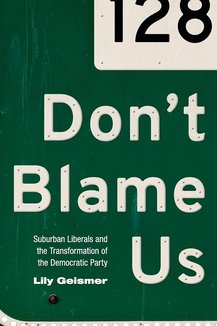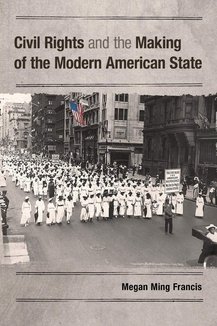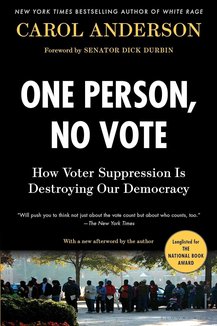Recommended Books

Don't Blame Us: Suburban Liberals and the Transformation of the Democratic Party (Politics and Society in Modern America)
Author:
Lily Geismer
ISBN 13:
978-0691176239
Don't Blame Us traces the reorientation of modern liberalism and the Democratic Party away from their roots in labor union halls of northern cities to white-collar professionals in postindustrial high-tech suburbs, and casts new light on the importance of suburban liberalism in modern American political culture. Focusing on the suburbs along the high-tech corridor of Route 128 around Boston, Lily Geismer challenges conventional scholarly assessments of Massachusetts exceptionalism, the decline of liberalism, and suburban politics in the wake of the rise of the New Right and the Reagan Revolution in the 1970s and 1980s. Although only a small portion of the population, knowledge professionals in Massachusetts and elsewhere have come to wield tremendous political leverage and power. By probing the possibilities and limitations of these suburban liberals, this rich and nuanced account shows that―far from being an exception to national trends―the suburbs of Massachusetts offer a model for understanding national political realignment and suburban politics in the second half of the twentieth century.

Civil Rights and the Making of the Modern American State
Author:
Megan Ming Francis
ISBN 13:
978-1107697973
Did the civil rights movement impact the development of the American state? Despite extensive accounts of civil rights mobilization and narratives of state building, there has been surprisingly little research that explicitly examines the importance and consequence that civil rights activism has had for the process of state building in American political and constitutional development. Through a sweeping archival analysis of the NAACP's battle against lynching and mob violence from 1909 to 1923, this book examines how the NAACP raised public awareness, won over American presidents, and secured the support of Congress. In the NAACP's most far-reaching victory, the Supreme Court ruled that the constitutional rights of black defendants were violated by a white mob in the landmark criminal procedure decision Moore v. Dempsey. This book demonstrates the importance of citizen agency in the making of new constitutional law in a period unexplored by previous scholarship.

One Person, No Vote
Author:
Carol Anderson
ISBN 13:
978-1635571394
As featured in the documentary All In: The Fight for Democracy PEN/John Kenneth Galbraith Award Finalist, Longlisted for the National Book Award, NPR Politics Podcast Book Club Choice Best Books of the Year-- Washington Post, Boston Globe, NPR, Bustle, NYPL From the award-winning, NYT bestselling author of White Rage , the startling--and timely--history of voter suppression in America, with a foreword by Senator Dick Durbin, now with a new afterword by the author. In her New York Times bestseller White Rage , Carol Anderson laid bare an insidious history of policies that have systematically impeded black progress in America, from 1865 to our combustible present. With One Person , No Vote , she chronicles a related history: the rollbacks to African American participation in the vote since the 2013 Supreme Court decision that eviscerated the Voting Rights Act of 1965. Known as the Shelby ruling, this decision effectively allowed districts with a demonstrated history of racial discrimination to change voting requirements without approval from the Department of Justice. Focusing on the aftermath of Shelby , Anderson follows the astonishing story of government-dictated racial discrimination unfolding before our very eyes as more and more states adopt voter suppression laws. In gripping, enlightening detail she explains how voter suppression works, from photo ID requirements to gerrymandering to poll closures. In a powerful new afterword, she examines the repercussions of the 2018 midterm elections. And with vivid characters, she explores the resistance: the organizing, activism, and court battles to restore the basic right to vote to all Americans.